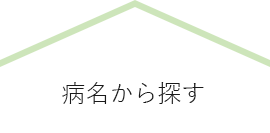公開日 2023.8.25
強迫症に対するSSRI及びアナフラニールの比較
2022年1月Tao, Y.らによって児童・青年の強迫症に対する薬物治療・心理療法及び薬物治療と心理療法の併用による治療効果を比較した解析結果が報告されました1)。
その中で薬物治療においては、エスシタロプラム(レクサプロ)が他のSSRI及びクロミプラミン(アナフラニール)より治療効果が優れている結果が示されました(図1)。
従来の研究では児童・青年及び成人の強迫症に対する各SSRIの治療の効果の差はなかったことから2)、3)、今回の結果は大きなインパクトがあります。
図1 児童・青年の強迫性障害に対する薬物治療の比較 SSRI及びアナフラニール間での比較

抗精神病薬による増強療法(augmentation)の比較
1剤のSSRIで十分な治療の反応が得られる率は約40~60%であり4)、効果反応が不十分な場合は増強療法(augmentation;使用中の薬剤に別の薬剤を追加して効果を増強する薬物治療法)が行われることがあります。
増強療法では従来、第2世代抗精神病薬が使用され、アリピプラゾール(エビリファイ)とリスペリドン(リスパダール)の2剤が有効であることが分かっています5)、6)、(図2)。
図2 SSRI抵抗性の強迫性障害に対する抗精神病薬による増強療法の比較

第2世代抗精神病薬及びグルタミン酸抑制薬による増強療法の比較
近年は第2世代抗精神病薬に加え、グルタミン酸抑制薬が増強療法剤として有効であることが報告されています7)。
2019年にZhou, DD.らはSSRIで治療効果が十分に得られない強迫性障害に対する増強療法の効果の比較を、第2世代抗精神病薬とグルタミン酸受容体阻害薬を含めて解析し、報告しています8)。
グルタミン酸受容体阻害薬のメマンチン(メマリー)、ラモトリギン(ラミクタール)、トピラマート(トピナ)、第2世代抗精神病薬のアリピプラゾール(エビリファイ)、リスペリドン(リスパダール)の順に有効性が認められる結果でした(図3)。
忍容性は各薬剤の間で差は出ませんでした。
図3 SSRI抵抗性の強迫性障害に対する増強療法の比較

最新の増強療法の比較
2023年7月Maitiらは新たに強迫症(強迫性障害)に対するSSRIの増強療法の薬剤の有効性の比較解析を行い、2019年のZhouらの解析同様メマンチン、ラモトリギンが特に優れている結果でした9)、(図4)。
図4 強迫性障害に対するSSRIへの増量療法の各薬剤の有効性の比較

2019年のZhouらの解析と異なる点としては、オンダンセトロン、グラニセトロンといったセロトニン5-HT3阻害薬の有効性が示されたことです。
これらの結果から現在は徐々にグルタミン酸阻害薬を増強療法剤として選択する治療も増えてきています。
強迫症はセロトニン系、ドパミン系、グルタミン酸系システムが相互に関与していることがわかっており10)、SSRIとどのように増強療法を組み合わせるかバランスの良い選択が検討されます。
文献
- 1) Tao Y, et al. : Comparing the efficacy of pharmacological and psychological treatment, alone and in combination, in children and adolescents with obsessive-compulsive disorder: A network meta-analysis. J Psychiatr Res, 148 : 95-102, 2022.
- 2) Ivarsson T, et al. : The place of and evidence for serotonin reuptake inhibitors (SRIs) for obsessive compulsive disorder (OCD) in children and adolescents: Views based on a systematic review and meta-analysis. Psychiatry Res, 227 : 93-103, 2015.
- 3) Skapinakis P, et al. Pharmacological and psychotherapeutic interventions for management of obsessive-compulsive disorder in adults: a systematic review and network meta-analysis. Lancet Psychiatry, 3 : 730-739, 2016.
- 4) Pallanti S, Quercioli L. : Treatment-refractory obsessive-compulsive disorder: methodological issues, operational definitions and therapeutic lines. Prog Neuropsychopharmacol Biol Psychiatry, 30 : 400-12, 2006.
- 5) Veale D, et al. : Atypical antipsychotic augmentation in SSRI treatment refractory obsessive-compulsive disorder: a systematic review and meta-analysis. BMC Psychiatry, 14 : 317, 2014.
- 6) Dold M, et al. : Antipsychotic Augmentation of Serotonin Reuptake Inhibitors in Treatment-Resistant Obsessive-Compulsive Disorder: An Update Meta-Analysis of Double-Blind, Randomized, Placebo-Controlled Trials. Int J Neuropsychopharmacol, 18 : pyv047, 2015.
- 7) Laoutidis ZG, et al. : Glutamatergic Agents as Add-On Medication for the Treatment of Obsessive-Compulsive Disorder: A Systematic Review and Meta-Analysis. J Clin Psychiatry, 77 : e1576-e1583, 2016.
- 8) Zhou DD, et al. : Augmentation agents to serotonin reuptake inhibitors for treatment-resistant obsessive-compulsive disorder: A network meta-analysis. Prog Neuropsychopharmacol Biol Psychiatry, 90 : 277-287, 2019.
- 9) Maiti R, et al. : Pharmacological augmentation of serotonin reuptake inhibitors in patients with obsessive-compulsive disorder: A network meta-analysis. Acta Psychiatr Scand, 148 : 19-31. 2023.
- 10) Pauls DL, et al. : Obsessive-compulsive disorder: an integrative genetic and neurobiological perspective. Nat Rev Neurosci, 15 : 410-24, 2014.

- 頭が働かない
- 寝つきが悪い
- やる気が起きない
- 不安で落ち着かない
- 朝寝坊が多い
- 人の視線が気になる
- 職場に行くと体調が悪くなる
- 電車やバスに乗ると息苦しくなる

- うつ病
- 強迫性障害
- 頭痛
- 睡眠障害
- 社会不安障害
- PMDD(月経前不快気分障害)
- パニック障害
- 適応障害
- 過敏性腸症候群
- 心身症
- 心的外傷後ストレス障害
- 身体表現性障害
- 発達障害
- ADHD(注意欠如・多動症)
- 気象病・天気痛
- テクノストレス
- バーンアウト症候群
- ペットロス(症候群)
- 更年期障害
- 自律神経失調症










